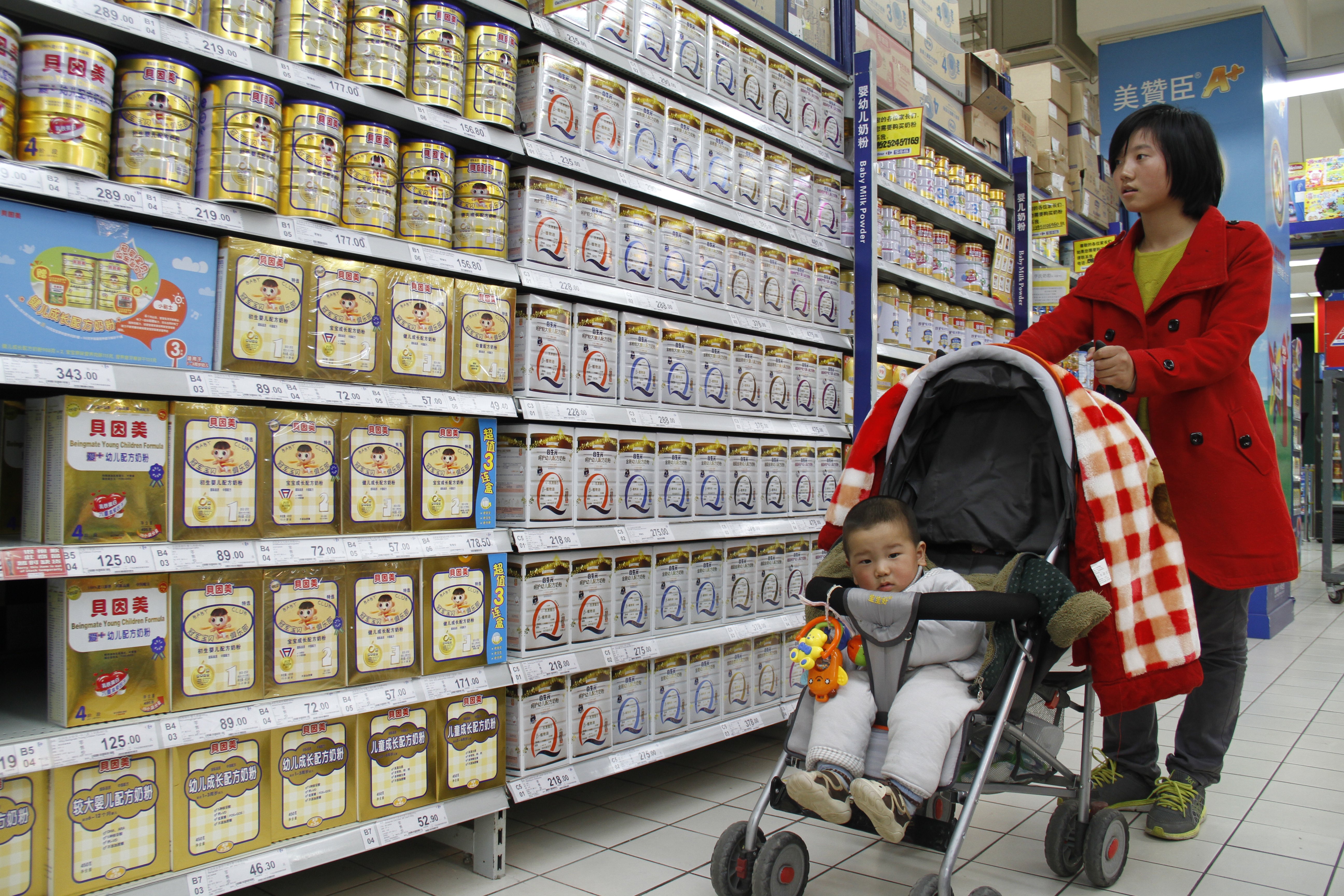Profit at the expense of moral values

Ever since adulterated milk killed six babies in 2008, Chinese people have rushed to buy foreign powdered milk. But how has it come to this? swissinfo.ch asked its readers in China for their take on the issue.
For the reader texture, the problem is simple: it’s the fault of a “capitalist consumer society”. The same reader adds that this problem isn’t exclusive to China – “we must force ourselves to create a society based on justice and to live with dignity instead of being slaves to consumerism”.
In the same vein, isabel deplores that “for around 60 years” her compatriots have “lost faith, the notion of family and a sense of good and bad. They only think of money. For money, people abandon everything – an absolute moral scandal”.
She says there are also problems with vegetables and cereal. isabel ends up wondering whether “the chicken, duck and fish we eat really are chicken, duck and fish”, referring to a recent scandal in which rat, mink and fox meat was sold as mutton.
These comments were gathered through a request on social media by swissinfo.ch’s Chinese service. The most revealing messages have been translated, shortened and summarised. This reflection of public opinion cannot, however, be considered representative.
Authorities called into question
While ann points to a “multifactor problem involving political, economic and cultural issues”, other readers don’t hesitate to point the finger directly at the Chinese authorities.
justnoname accuses “the Chinese civil servants who care about only GDP” and the prices, which go up more quickly than farmers’ incomes. As a result, according to this reader, farmers are tempted to cheat – all the more since “the quality standards for dairy products in China haven’t been updated in ages” and “to earn more money, certain dairy companies entrust quality control to the farmers themselves”.
a dragon in the sky also questions the quality standards, which “are not made for the safety of consumers but for the interest of the producers”. This reader adds that “the law is just a sheepskin to fool the wolf.”
Similarly, nagual thinks that “to make the maximum amount of profit, companies don’t hesitate to employ illegal methods – and the government protects them…”. As a result, “more and more producers are daring to break the law. And the people are desperate”.
More directly, qmarkboy sees a “political problem” in the scandal. For him, “the authority concerned isn’t efficient” and “the economic policy doesn’t support local production”. It is therefore urgent that “checks are reinforced, good companies are supported, bad ones punished, privileges for civil servants are abolished and the results of the inspections are published online”.

More
Chinese parents drive baby milk powder boom
Demographic explosion
“The system doesn’t work anymore!” reckons book. “The loss of belief, the moral decadence, the cultural disorientation, the demographic explosion, the overpopulation – all that contributes to the problem.”
More confident, yangyang believes the problem is “linked to the massive demand of the Chinese market”. But yangyang also firmly believes that “in the coming years, the Chinese government could solve the problem”.
Switzerland and China have agreed in principle a free trade deal, following almost two-and-a-half years of negotiations.
The talks were concluded at a technical level earlier last week. The accord is to be signed in the next few months, pending approval by parliament.
The agreement is expected to play a central role in discussions when Chinese Prime Minister Li Keqiang visits Bern on May 24.
The details of the text are not known, but important issues for Switzerland include market access for industry and intellectual property rights. China wants to boost sales of its agricultural products in Switzerland.
The watch industry is another key area for attention. According to the Federation of the Swiss Watch Industry, 40 million fake watches are produced every year in the world – many of them in China. The turnover of Swiss watch counterfeiters amounts to about CHF1 billion ($1.03 billion).
China is one of Switzerland’s most important Asian trading partners. Switzerland is one of the few Western countries to have a positive balance of trade with China (in 2011, Swiss exports were $14.7 billion and imports were $7.4 billion).

In compliance with the JTI standards
More: SWI swissinfo.ch certified by the Journalism Trust Initiative








You can find an overview of ongoing debates with our journalists here . Please join us!
If you want to start a conversation about a topic raised in this article or want to report factual errors, email us at english@swissinfo.ch.